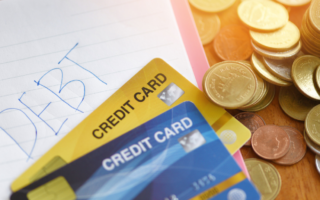Achieving financial freedom is a goal that many aspire to but only a few successfully attain. It’s about having enough money to live the life you desire without the constant stress of financial insecurity. While there’s no single formula for financial freedom, certain habits are proven to lead to success.
In this article, we’ll explore 15 essential habits that can guide you on the path to financial independence, whether you’re just starting out or looking to refine your financial strategy.
Understanding Financial Freedom
Before diving into the habits, it’s crucial to understand what financial freedom really means. Financial freedom isn’t about being rich—it’s about having control over your finances, being debt-free, and having enough saved or invested to support your lifestyle without relying on a paycheck. It enables you to make life choices without being excessively worried about the financial consequences.
For many, financial freedom is synonymous with security and peace of mind. It means having the resources to handle emergencies, pursue your passions, and retire comfortably when you choose. But reaching this state requires a proactive approach to managing your finances.
Why Habits Are Crucial for Financial Freedom
Habits are the building blocks of financial freedom. Your daily actions and decisions compound over time, leading to either financial success or struggle. By developing the right habits, you create a strong financial foundation that can withstand challenges and grow your wealth consistently.
Good financial habits are about more than just saving money; they encompass everything from spending wisely to investing for the future, paying off debt, and continuously improving your financial literacy. The right habits help you make informed decisions, stay disciplined, and ultimately reach your financial goals.
1 Setting Clear Financial Goals
One of the first steps toward financial freedom is setting clear, realistic financial goals. Without a target, it’s impossible to measure progress or stay motivated. Your goals should be SMART—Specific, Measurable, Achievable, Relevant, and Time-bound.
For example, instead of saying, “I want to save more money,” set a goal like, “I will save $10,000 in my emergency fund by the end of this year.” Having specific goals gives you a clear path to follow and helps you prioritize your spending and saving habits.
2 Creating and Sticking to a Budget
Budgeting is a fundamental tool for achieving financial freedom. A budget helps you track your income and expenses, ensuring that you’re living within your means. It’s not about restricting yourself but rather about making intentional choices with your money.
Begin by identifying your income sources and fixed costs, including rent or mortgage payments, utilities, and insurance. Next, factor in variable expenses like groceries, entertainment, and travel. Finally, allocate a portion of your income toward savings and investments. The key is to review your budget regularly and adjust as needed to stay on track.
3 Building an Emergency Fund
An emergency fund serves as a crucial financial cushion for unforeseen expenses, like medical emergencies, car repairs, or losing a job. It protects you from falling into debt during unexpected situations. Financial advisors typically suggest saving enough to cover three to six months of living expenses, kept in a readily accessible account.
To begin, allocate a small portion of your income each month toward your emergency fund. Automating your savings can simplify this process and help ensure regular contributions, making it easier to steadily build your fund over time.
4 Living Below Your Means
Living below your means is one of the most effective ways to build wealth and achieve financial freedom. It involves spending less than you earn and avoiding lifestyle inflation—the tendency to increase your spending as your income rises.
To live below your means, focus on distinguishing between needs and wants. Focus on covering your essential expenses first and seek opportunities to cut back on non-essential spending. This might involve cooking at home instead of dining out, buying used instead of new, or delaying big purchases until you can pay for them in cash.
5 Paying Off Debt Early
Debt can be a significant obstacle to financial freedom, especially high-interest debt like credit cards and personal loans. The longer you carry debt, the more you pay in interest, which can prevent you from saving and investing for the future.
Prioritize paying off high-interest debt as quickly as possible. One popular method is the debt avalanche, where you focus on paying off the debt with the highest interest rate first while making minimum payments on others. Alternatively, the debt snowball method focuses on paying off the smallest debts first to build momentum.
6 Investing Regularly
Investing is crucial for building wealth and reaching financial freedom. The sooner you begin investing, the more time your money has to grow thanks to the power of compound interest. Whether it’s stocks, bonds, real estate, or mutual funds, regular investments can significantly increase your net worth over time.
Start by setting up a retirement account, such as a 401(k) or IRA, and contribute regularly. If you’re new to investing, consider using a robo-advisor or working with a financial planner to create a diversified portfolio that matches your risk tolerance and financial goals.
7 Automating Finances
Automation can simplify your financial life and help you stay consistent with your financial goals. By automating your savings, bill payments, and investments, you reduce the risk of missing payments or forgetting to save.
Arrange for automatic monthly transfers from your checking account to your savings and investment accounts. You can also automate your bill payments to ensure that you never incur late fees or damage your credit score.
8 Increasing Your Income Streams
Relying on a single income source can be risky. Diversifying your income streams not only provides financial security but also accelerates your path to financial freedom. This could involve taking on a side gig, investing in real estate, or generating passive income through investments like dividends or rental properties.
Look for opportunities to leverage your skills and interests to create additional income. Even small amounts of extra income can add up over time and significantly impact your financial situation.
RECOMMENDED: 20 Steps to Start an Online Business
9 Continuously Educating Yourself About Finance
Financial literacy is a critical component of financial freedom. The more you know about managing money, investing, and planning for the future, the better equipped you’ll be to make informed decisions.
Make it a habit to continuously educate yourself about finance. Read books, attend seminars, listen to financial podcasts, or take online courses. Staying informed about financial trends and best practices can help you adapt your strategies and stay ahead.
10 Monitoring and Adjusting Financial Plans
Financial plans are not set in stone; they need regular review and adjustment to remain effective. Life circumstances, market conditions, and personal goals change over time, and your financial plan should reflect these changes.\
Set aside time each year to review your financial goals, budget, investments, and debt. Adjust your plan as needed to ensure that you’re still on track to achieve financial freedom. Regular monitoring helps you catch potential issues early and make necessary changes before they become significant problems.
11 Practicing Delayed Gratification
Delayed gratification is the ability to resist the temptation of immediate rewards in favor of long-term gains. This habit is essential for financial freedom because it helps you prioritize long-term financial security over short-term pleasures.
For example, instead of making an impulsive purchase, you might choose to save that money or invest it for future growth. While it’s important to enjoy life, finding a balance between spending and saving is key to achieving financial independence.
12 Surrounding Yourself with Financially Savvy People
The individuals you surround yourself with can greatly influence your financial habits and mindset. If your social circle includes financially savvy individuals, you’re more likely to adopt good financial habits yourself.
Seek out mentors, join financial communities, or simply spend time with people who share your financial goals. Engaging with others who are committed to financial freedom can provide support, accountability, and new ideas.
13 Keeping Health in Check
Good health is a cornerstone of financial freedom. Medical expenses can be a major financial burden, so it’s essential to maintain your health to avoid unexpected costs and ensure long-term financial stability.
Prioritize regular exercise, a balanced diet, and routine medical checkups. Additionally, consider investing in health insurance to protect yourself from high medical costs in the event of illness or injury.
14 Staying Disciplined During Market Volatility
Financial markets are inherently volatile, and it can be tempting to react emotionally to market downturns. However, staying disciplined during periods of market volatility is crucial for long-term investment success.
Stick to your investment strategy, and avoid making impulsive decisions based on short-term market movements. Remember that investing is a long-term game, and temporary market fluctuations are normal.
15 Giving Back and Staying Grounded
Financial freedom isn’t just about accumulating wealth—it’s also about giving back and staying grounded. Philanthropy can provide a sense of purpose and fulfillment, reminding you of the broader impact of financial success.
Whether it’s donating to a cause you care about, volunteering your time, or helping others with their financial goals, giving back can enhance your life and keep you connected to what truly matters.
Impact of These Habits on Financial Freedom
The impact of these 15 habits on your journey to financial freedom cannot be overstated. By consistently applying these practices, you’ll develop a strong financial foundation that allows you to grow your wealth, avoid unnecessary debt, and live life on your terms.
Financial freedom is not a destination but a journey. Each habit contributes to building a more secure and prosperous future. Over time, you’ll find that these habits become second nature, helping you navigate financial challenges and seize opportunities with confidence.
Financial Freedom is Achievable
Reaching financial freedom is a journey that requires discipline, consistency, and the right habits. By incorporating these 15 habits into your daily life, you’ll be well on your way to achieving the financial independence you desire. Remember, financial freedom is about more than just having money—it’s about having the ability to live life on your terms, free from the constraints of financial stress.
Take the first step today by setting clear financial goals, creating a budget, and committing to the habits that will lead you to financial success. With time, perseverance, and a focus on continuous improvement, you’ll find yourself closer to financial freedom than you ever imagined.
FAQs
How can I start investing if I’m new to it?
If you’re new to investing, start by opening a retirement account like a 401(k) or IRA. You can also use robo-advisors or consult a financial planner to help you create a diversified portfolio.
Is it necessary to have multiple income streams?
While it’s not necessary, having multiple income streams can provide financial security and accelerate your path to financial freedom by diversifying your income sources.
How often should I review my financial plan?
You should review your financial plan at least once a year, or more frequently if there are significant changes in your life, such as a job change, marriage, or the birth of a child.
How important is financial education in achieving financial freedom?
Financial education is critical. The more you know about managing money, investing, and planning for the future, the better equipped you’ll be to make informed decisions and achieve financial freedom.
How can I stay disciplined during market volatility?
Stay focused on your long-term goals and avoid making impulsive decisions based on short-term market movements. Sticking to your investment strategy is key during periods of market volatility.




